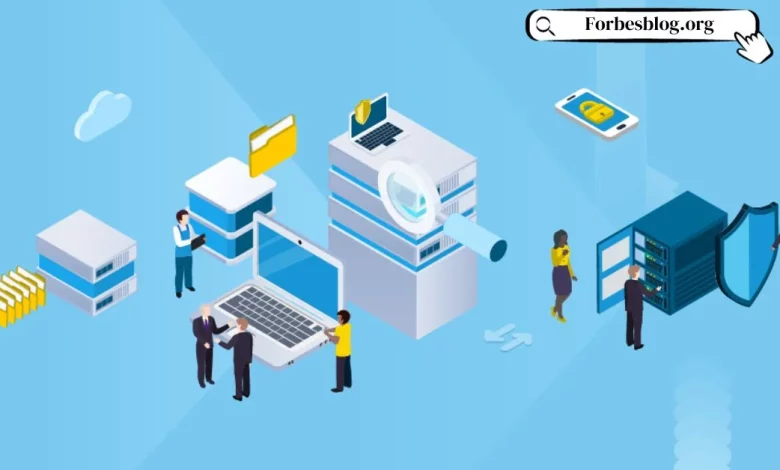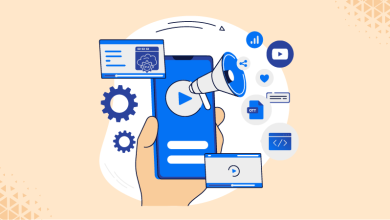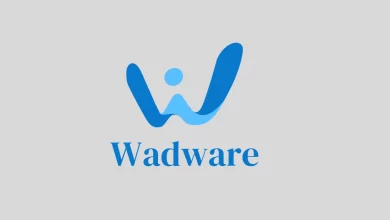E-Commerce Data Pipeline: Why is it So Beneficial?

Data Pipeline is a software system that automates the process of managing, collecting, and analyzing data. It can handle data from a variety of sources (e.g., data from traditional CRM systems, IoT data, business event data, application event logs, etc.). The e-commerce data pipeline is the technology that processes data before it is saved to the database. A data pipeline allows the data to be sent to the database more quickly and efficiently, which can help you increase your ability to sell website traffic.
The ecommerce data pipeline is an IT tool that is used for capturing, cleansing, and enriching data, and it is an effective business intelligence tool. This data pipeline can be used to extract data from any data source into a more structured data format such as a data mart or data lake. Data pipelines can be used for analyzing data or for data-driven decision-making.
Data pipelines provide standard information to consumers. There’s basic information where you can see what your sales were yesterday, what your basic stats are for the day, and so on. Data pipelines help users who are seeking baseline business information. Once you’ve mastered the fundamentals, they may be exploited to your advantage. To try to forecast the future, data pipelines develop into machine learning, AI, and other types of business intelligence centered on your consumers. A functioning data pipeline is required to continually extract and extend the value of models and insights.
Data pipelines are a critical mechanism for managing e-commerce data. The pipeline is responsible for moving data from where it is stored to its destination. It also handles the transformation of data from one format into another, for example when moving data from a spreadsheet into an online database. It can also ingest data from external sources such as Salesforce, social media, and more into a database.
In e-commerce, data pipelines are a critical mechanism for managing the flow of orders and data. They can also be used to forecast the future, quickly process batch transactions, make decisions that feed into other parts of our business, and analyze the business to improve its performance. Advances in the field of data processing and technology have made it possible to gather, clean, and process data in ways never before possible. The data pipeline, as a business intelligence tool, can make it easier for your business to optimize its performance, gain deeper insights, and grow your business revenue. By automating and streamlining data processes through a data pipeline, you can save time, money, and resources. Thus, below are some of the benefits of using a data pipeline.
- Increased personalization– The ability to personalize the experience for each user is one of the most powerful uses of a data pipeline. Data pipelines allow for the rapid processing of large volumes of data to generate highly accurate user profiles, which can be used to deliver highly personalized experiences. This enables companies to provide a better experience for each user, which can result in higher loyalty and better sales. Data pipelines also allow companies to continuously improve the experience for their users, which improves the overall experience and results in higher sales and retention.
- Optimized pricing and increased sales– The ability to process large volumes of data quickly allows companies to optimize pricing, which can result in higher sales. Data pipelines can be used to extract data from multiple sources such as sales, marketing campaigns, and customer interactions to generate profiles, which can be used to offer highly personalized experiences. This enables companies to provide a better experience for each user, which can result in higher loyalty and better sales.
- Dynamic customer service– Data pipelines can be used to provide a better customer experience by automatically responding to customer inquiries and requests. For example, a data pipeline could be used to automatically respond to customer inquiries and provide more information about an item when it is in stock. This would allow customers to get the information they need without having to wait on the phone or go to the store. Data pipelines can also be used to provide dynamic customer service by automatically responding to current customer requests.
- Predict trends, forecast demand– Data pipelines can be used to predict trends, such as how many people are going to buy certain products or services. This can help you determine when to increase inventory and when to cut inventory to meet demand. For example, a data pipeline could be used to predict that there is a high likelihood that there will be a surge in sales of a certain product next week. This could be used to automatically increase the amount of inventory of that product in the database.
- More secure online payment– Data pipelines can be used to handle online payments. They allow you to securely transmit data between online systems without having to send it in the clear. This helps protect your customers’ information, and it also helps ensure that your customers aren’t being charged multiple times for the same purchase. It also helps prevent fraud and other bad behavior on your website. This reduces the amount of time that you have to spend managing your finances and allows you to focus on growing your business.
- Elevated shopping experience- Data pipelines can be used to create an elevated shopping experience. They can be used to personalize the online experience for your customers. For example, a data pipeline could be used to detect when a customer is browsing on their phone instead of in a browser, and it could be used to provide a better shopping experience for that customer on their mobile device. This allows you to provide a better experience for your customers, which can help you build a stronger relationship with them and generate more sales.
Data pipelines can be a powerful tool for helping you manage e-commerce data and extract value from your data. They can help you predict trends, forecast demand, and create an elevated shopping experience for your customers. They can also help you secure online payments and create a better shopping experience for your customers on their mobile devices. This should help you build a stronger relationship with your current customers and generate more sales.
Visit for more articles: forbesblog.org




